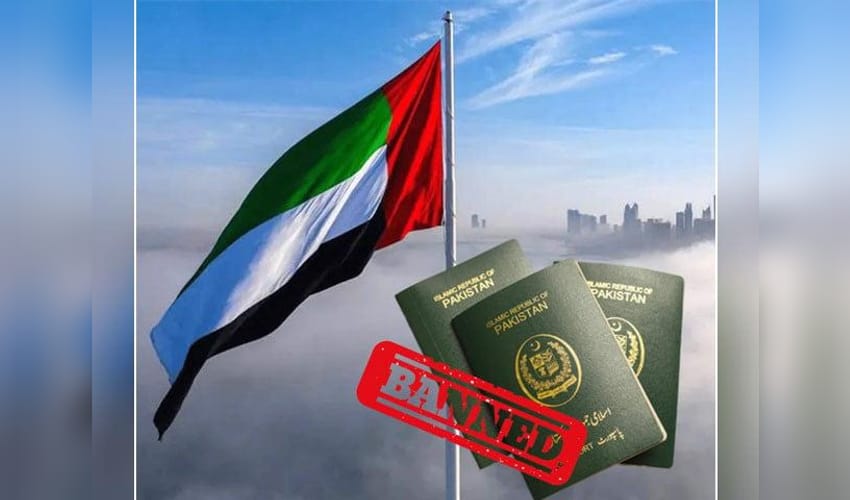News
UAE Halts Most Visas for Pakistanis: A Blow to Pakistani's Global Standing

The United Arab Emirates’ decision to stop issuing most categories of visas to Pakistani citizens has delivered a sharp diplomatic and reputational blow to Pakistan, exposing once again how chronic internal failures can translate into international consequences. During a Senate committee briefing, Pakistan’s Additional Interior Secretary revealed that the UAE has effectively halted visas for ordinary Pakistani passport holders, allowing only diplomatic or official passport categories to proceed. Although the UAE has stopped short of a formal “passport ban,” Pakistani officials admitted that the possibility had been seriously considered due to repeated incidents of criminal activity involving Pakistani nationals in the Gulf state.
Reports shared with the Senate highlight a troubling pattern: misuse of visit and work visas, organised begging groups, drug-related offences, fake employment documents and involvement in other criminal acts. These incidents though carried out by a minority have collectively damaged the credibility of the Pakistani passport. Pakistan’s appeal to Gulf employers and authorities has been weakening for years, but the UAE’s latest move signals a new level of frustration with Islamabad’s inability to regulate behaviour, enforce emigration controls or ensure accountability among its overseas workforce.
Confusion deepened when the UAE Consul General in Karachi publicly denied the presence of any “visa ban” and insisted that applications were being processed in high numbers. Yet, testimony from Pakistan’s own interior officials, and the consistent experiences of citizens struggling to obtain visas, suggest that the reality on the ground is far from normal. The contradictory messaging reveals a communication breakdown between the two governments, and possibly an attempt by the UAE to avoid diplomatic friction while still tightening restrictions behind the scenes.
The consequences for Pakistan are severe. With nearly two million Pakistanis living and working in the UAE, remittances from the Gulf play a lifeline role for Pakistan’s struggling economy. A freeze on visas limits new employment opportunities, hits low-income families hardest and threatens to shrink one of Pakistan’s most important financial inflows. It also strengthens the perception that the Pakistani passport is becoming increasingly unwelcome abroad, especially in countries where labour discipline, documentation and security checks are taken seriously.
This episode also reflects poorly on Pakistan’s governance. Authorities have long been aware of rampant visa fraud, illegal manpower agents, forged documents and exploitation of migrants, yet enforcement remains lax. As a result, Pakistani migrants not only suffer exploitation in host countries but also carry the collective stigma of a system that fails to supervise its citizens effectively. The UAE’s drastic step is not merely a reaction to individual crimes; it is a judgment on Pakistan’s institutional weaknesses and its inability to reform its overseas labour processes.
Diplomatically, the episode exposes growing mistrust. While UAE officials deny any ban, Pakistan’s own ministries openly warn of visa restrictions and admit that a complete passport ban was narrowly avoided. Such mixed signals damage Pakistan’s credibility and reinforce the image of a government unable to manage or communicate its external relations with clarity.
The UAE visa freeze, whether publicised or quietly enforced, should be seen as a serious warning. It underscores how a combination of governance failures, poor overseas controls, and repeated criminal cases can push even friendly nations to distance themselves from Pakistan. Unless Islamabad confronts these systemic issues and rebuilds trust with international partners, further isolation could follow and the cost will be paid not by the powerful, but by ordinary Pakistani citizens who depend on Gulf employment to survive.
This Image is taken from The Express Tribune



